Revisions to STP Funding Allocations
For over 40 years, the use of negotiated percentages and a division of funds by population has been used in the Chicago Metropolitan Agency for Planning (CMAP) area to distribute STP funding to local municipalities. This has been done through an agreement among the MPO Policy Committee, the City of Chicago, and the Council of Mayors Executive Committee, which provides that the individual councils of government and the City of Chicago are each responsible for programming funds in their areas. This agreement has generally been renegotiated with passage of each new federal transportation bill, and this basic arrangement has been maintained since the 1970s.
In the U.S. Department of Transportation’s (USDOT) 2014 Chicago, Illinois Transportation Management Area (TMA) Certification Review, federal reviewers found that CMAP should not be using non-performance (population) based methods to allocate funds and called for an examination of the practice the next time the agreement between the City and the Council of Mayors came up for reconsideration. In addition, the existing agreement called for a reexamination of its provisions when the new federal transportation bill passed at the end of 2015.
The current agreement between the City of Chicago and the Council of Mayors calls for:
• 5% for one or more regional projects as selected by the City of Chicago that benefits both the city and the suburbs.
• 45% of the remaining 95% to be programmed by the City of Chicago.
• 55% of the remaining 95% to be programmed by the individual Councils of Mayors, which is then further subdivided by council population.
With the FHWA requesting the region come up with a performance based selection process for STP funding, an STP working group was formed in early 2017 to begin discussing the future of the program. It was composed of representatives from the Council of Mayors Executive Committee, planning liaisons, Council of Government (COG) directors, the Metropolitan Mayors Caucus, the City of Chicago, Illinois Department of Transportation (IDOT), Federal Highway Administration (FHWA), and CMAP.
From that working group, a draft proposal was presented that contained four elements:
1. New shared funding program
2. Local funding distributed using a needs-based formula
3. Supplemental local project selection criteria based on CMAP’s ON TO 2050
4. Enhanced program management
Shared Local Fund
A Shared Local Fund would be established for funding larger projects supported by the suburban councils or the City of Chicago that address regional performance measures and help advance local and regional priorities.
The Shared Local Fund would be established using a set-aside of the region’s annual allotment of STP funding. Beginning in FFY 2020, the set-aside would be 10%, increasing to 12.5% in FFY
2021, and to 15% in FFY 2022 and all subsequent years. The fund would also be seeded with excess unobligated federal funding, also known as carryover, to be made available by IDOT for programming and obligation by project sponsors in the region. A total of $75 million will be made available: $30 million in FFY 2020, $25 million in FFY 2021, and $20 million in FFY 2022. It is envisioned that additional funds would be added to the shared fund annually, keeping the Shared Local Fund at around $40 million annually.
A Shared Fund Project Selection Committee composed of representatives would be established from:
• The Council of Mayors Executive Committee
• The City of Chicago
• IDOT
• The counties
• The Regional Transportation Authority (RTA) or a designated service boards representative
• CMAP staff
To preserve the strong municipal participation in decision-making, the Councils and City of Chicago would each have three votes, with other represented agencies each having one vote. CMAP staff would only vote in the event of a tie. The Shared Fund Project Selection Committee would have the authority to review applications and recommend projects to the MPO Policy Committee.
Local Programs
After the set asides for the Shared Local Fund, the remainder of the region’s annual STP allotment would be distributed to the eleven regional councils of mayors and the City via a performance-based formula.
In order to direct funding to where it is most needed, the distribution of funding to the councils and City will be by formula and be based on the relative performance of the local jurisdiction system of roadways, functionally classified as collectors or higher, for five measures:
1. Pavement Condition
2. Bridge Condition
3. Congestion
4. Safety
5. Single Occupant Vehicle (SOV) travel
In order to transition from the current population-based distribution to the performance-based distribution, the FFY 2020 distribution for each council and the City would be no more than 10% above or below its FFY 2017 distribution, and the FFY 2021 distribution would be no more than 20% above or below its FFY 2017 distribution. Additionally, no council would have an allocation of less than $3 million in any year.
Adjustments to the annual programming marks for local distribution and the shared local fund to account for changes to the regional allotment would be made by CMAP staff each year and the performance-based share would be re-calibrated to account for changes in conditions every five years, beginning in FFY 2025.
Project Selection to Support the Goals of CMAP’s ON TO 2050
In addition to addressing federal performance measures, the region will develop and implement a long range plan. The development of the region’s next plan by CMAP, ON TO 2050, is currently on-going, and will include several priorities that can be influenced by transportation infrastructure investments. To encourage investments that support the goals of ON TO 2050, each individual council and the City of Chicago would incorporate regional priorities into their project selection methodologies by assigning at least 25% of the points to six regional priorities:
1. Green Infrastructure
2. Reinvestment
3. Freight movement
4. Economically disconnected areas
5. Complete streets
6. Transit supportive density
Since not all of these ON TO 2050 priorities will be equally relevant in all councils and the City, each would have the flexibility to distribute points to any or all of these regional priorities based on local prerogative.
Enhanced Program Management
Pavement Management Systems
ON TO 2050 will continue the strong emphasis on maintenance and system preservation. Although more than half of the locally programmed STP funds obligated over the last 10 years went toward road resurfacing and reconstruction, the region cannot provide an overall condition rating for the locally controlled Federal-aid eligible routes. Nor is it clear that the funds were used in the most cost-effective way within each council by programming the most appropriate treatment given the age and condition of the pavement. Therefore, pavement management systems will be a vital part of the region’s plan to determine the optimum strategies for the most cost-effective pavement maintenance.
During the phase-in of new agreement provisions, CMAP will work with the councils, the City of Chicago, the counties and IDOT to establish local pavement management systems throughout the region. The pavement management systems will be used to determine the appropriate timing for pavement projects, and these types of projects will not be considered for federal funding unless they are included in a pavement management system.
Active Program Management
Ensuring that federal funds are obligated in a timely manner will be a priority. Funds left unobligated are subject to being lost by the region. The use of active program management (APM) practices encourages timely expenditure and ensures that projects that are ready to go can move forward. Several councils currently use APM strategies, and the region has successfully implemented APM policies for the CMAQ and TAP funded programs.
However, while advance funding has accelerated implementation of projects, it typically has not been able to make a significant dent in the region’s overall unobligated balance. To prevent the reservation of funding for projects that are not moving forward, and in order to provide a fair and equitable approach, an APM system that is uniform and applies to both the shared local fund and local programs will be developed by the Shared Fund Project Selection Committee. This system would include deadlines for projects to be initiated, deadlines for project phases to be obligated, grace periods for local reprogramming of funds, policies for project and phase eligibility, and policies for re-distribution of unobligated funds to the shared local program.
Phase-in of the Plan
Phase-in of the plan would begin immediately upon execution of the new agreement and would continue through the initial calls for projects for the shared local fund and local programs. In order to establish the Shared Local Fund, while still honoring commitments that councils have made to project sponsors, the addition of new projects or phases of projects to council programs would be discontinued until the new initial call for projects. All individual council funding balances, whether positive or negative, would be forgiven, and a single regional balance of funding would be established. The balance would use that portion of the existing unobligated carryover not reserved for seeding the shared fund that is available for obligation, along with the entire northeastern Illinois allotments for FFY 2018 and 2019, and that portion of the FFY 2020 allotment not set-aside for the shared fund.
Council and City project phases would be advanced to federal obligation on a “first ready, first funded” basis until all committed phases are complete, all funds have been exhausted, or a call for local projects is issued for FFY 2021 – 2025. In the absence of an adopted program, the commitment to the City of Chicago would be defined as the annual allotment, including the 5% regional set-aside, which the City was entitled to for FFY 2017.
Next Steps
As the region transitions to the new program established in the agreement between the Council of Mayors and the City of Chicago, there are a number of implementation deadlines to meet:
• The transition would start with the establishment of the Shared Fund Project Selection Committee by the end of 2017.
• That committee would begin development of an Active Program Management system to be established by June 30, 2018.
• The committee would also develop the shared fund evaluation methodology prior to the first call for projects for the Shared Local Fund.
• CMAP, the councils, the City of Chicago, and the Shared Fund Project Selection Committee would collaborate with each other and appropriate regional partners to collect data necessary for performance-based distribution of funding and the establishment of pavement management systems.
• Finally, CMAP would work with IDOT and FHWA to reconcile accounting of past STP accomplishments to ensure a stable, reliable, and predictable source of funding to implement the new agreement.
Illustrative Change in Local Program Distribution FFY 2017 to FFY 2020:
| Council | FFY 2017 allotment | Illustrative FFY 2020 allotment | Change FFY 2017 to FFY 2020 |
| Central | $3,138,388 | $3,000,000 | -4.4% |
| Chicago1 | $63,871,101 | $57,483,991 | -10.0% |
| DuPage | $11,271,468 | $11,198,233 | -0.6% |
| Kane/Kendall | $9,868,205 | $10,026,004 | 1.6% |
| Lake | $8,507,921 | $9,358,713 | 10.0% |
| McHenry | $3,958,003 | $4,114,692 | 4.0% |
| North Central | $3,778,438 | $4,156,282 | 10.0% |
| North Shore | $3,968,555 | $4,365,411 | 10.0% |
| Northwest | $8,687,388 | $7,818,649 | -10.0% |
| South | $6,327,698 | $5,694,928 | -10.0% |
| Southwest | $4,592,442 | $4,536,672 | -1.2% |
| Will | $7,165,240 | $7,669,809 | 7.0% |


